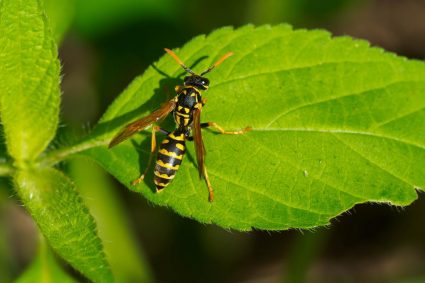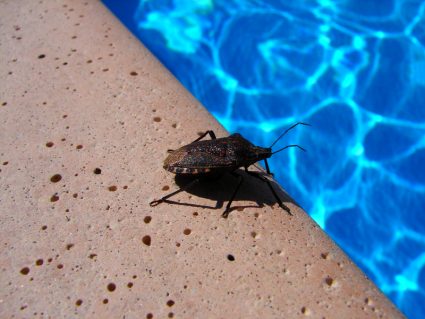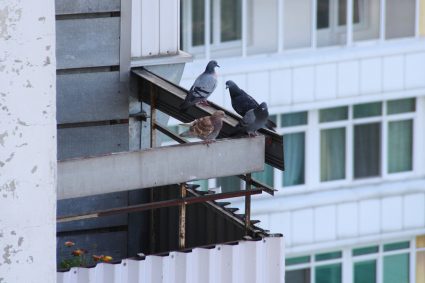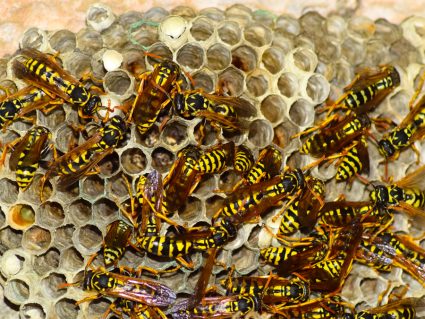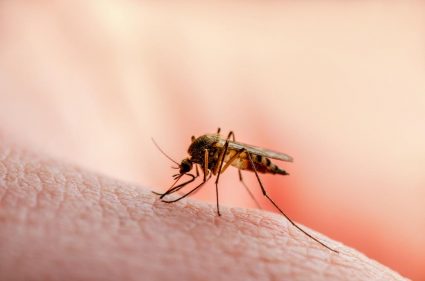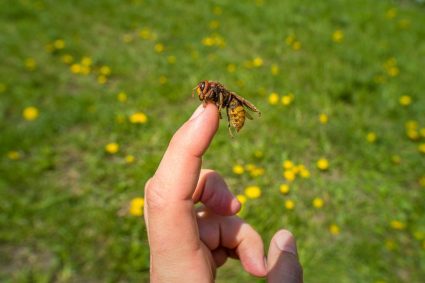
Solar panels are an increasingly popular way to generate clean, renewable energy, but they can also be attractive to animals, squirrels included.
While squirrels may seem cute and harmless, they can cause significant damage to solar panels.
Squirrels can cause significant damage to solar panels, leading to costly repairs and disruption of the solar energy system.
To prevent squirrels from accessing and damaging solar panels, physical, electrical, and chemical deterrents can be used.
- Physical deterrents include plastic wrap, fencing, or mesh screens.
- Electrical deterrents involve installing a wire mesh around the panels and using an ultrasonic repellent.
- Chemical deterrents involve hanging insect-repellent plants near the panels.
Professional services can also be hired to help deter squirrels from accessing solar panels.
Taking these preventive measures is important to ensure the safety and efficiency of your solar energy system.
In this post, we’ll explore the damage squirrels can cause on solar panels and discuss various methods to prevent them from accessing and damaging them.
Protecting your solar panels from squirrels is important, as they can cause costly damage that can disrupt your solar energy system operation.
So, if you’re looking to keep squirrels away from your solar panels, keep reading for helpful tips and strategies.
The Dangers of Squirrels on Solar Panels
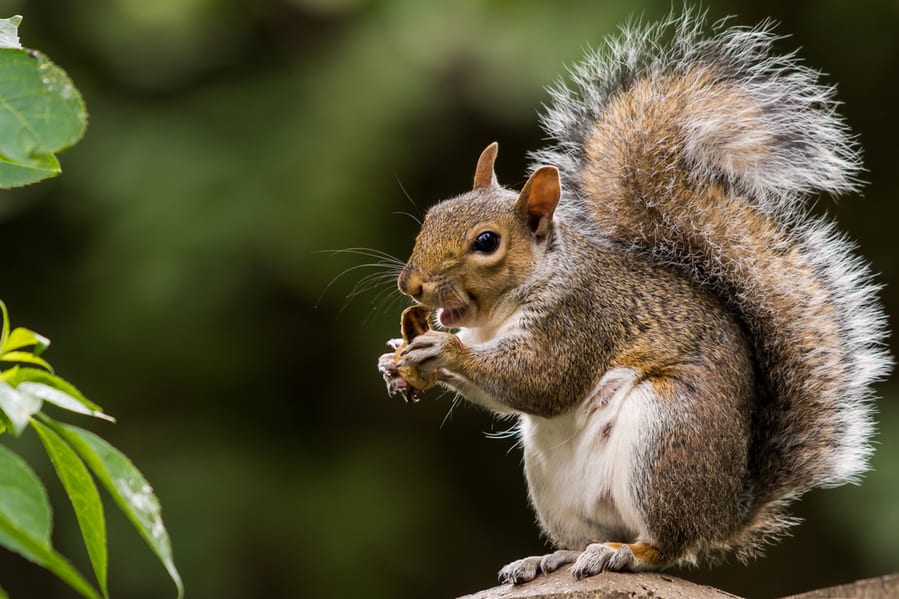
Squirrels can cause various problems for solar panel systems, including:
1. They Can Physically Damage the Panels Themselves
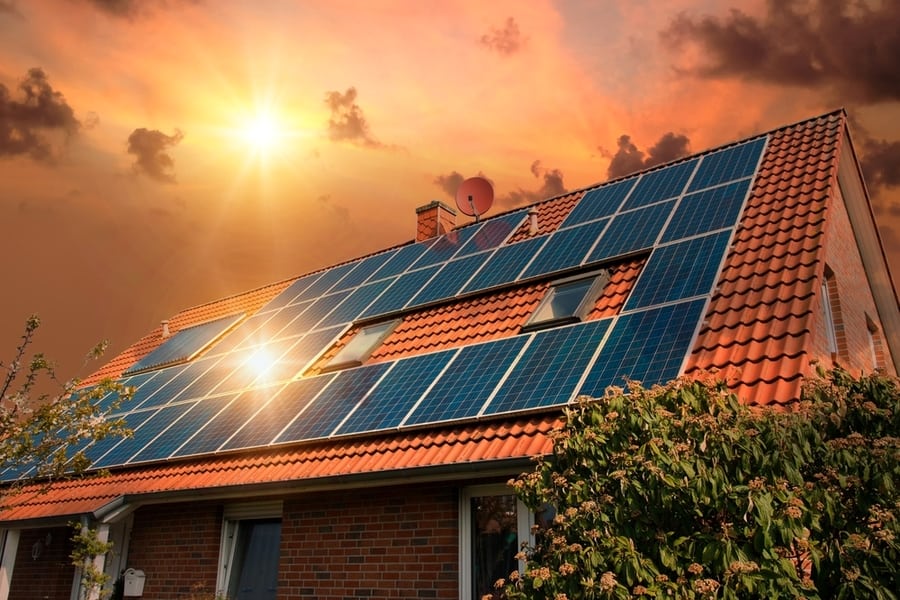
Squirrels have been known to chew wires and connectors of the solar panels and the rest of the electrical system leading to short circuits and other problems that can significantly reduce the efficiency of your solar panel system.
2. They Can Disrupt Other Operations of Your Solar Panel System
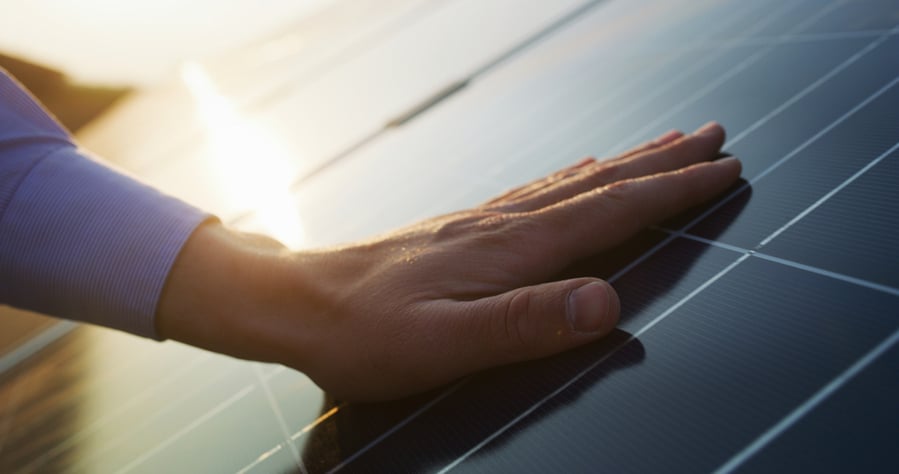
In addition to physical damage, squirrels can also disrupt the operation of your solar panel system in other ways.
For example, they may climb onto the panels and block the sun’s rays, making them unable to generate enough energy.
They may also create nests on or near the panels, which can further obstruct the sun’s rays and cause problems with the system’s operation.
Taking steps to prevent squirrels from accessing your solar panels is important to protect the integrity and efficiency of your solar energy system.
In the following sections, we’ll discuss various methods for preventing squirrels from accessing your solar panels.
Prevention Methods
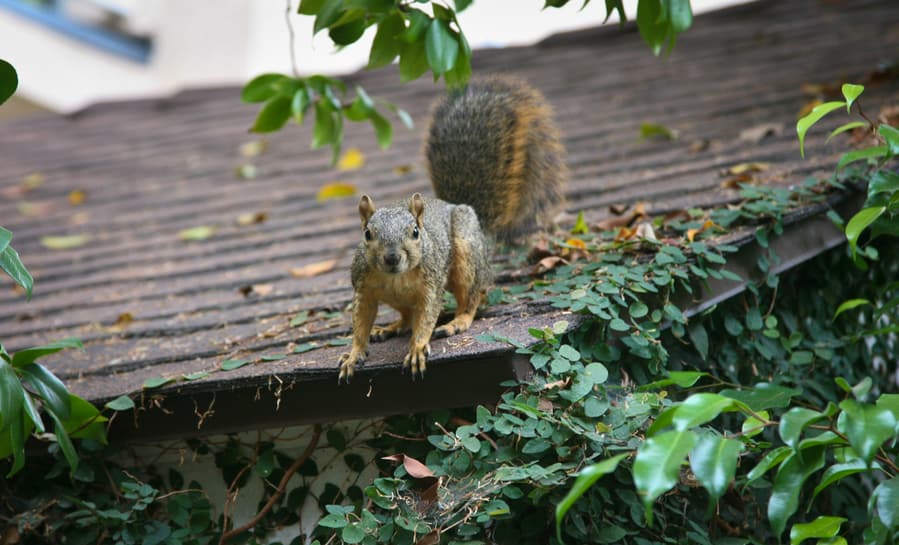
To prevent squirrels from accessing and damaging your solar panels, there are several methods you can use. We can broadly divide these methods into three categories:
- Physical barriers
- Electrical barriers
- Chemical repellents
Let’s take a look at each of these methods in more detail.
1. Physical Barriers

As we have discussed earlier, squirrels are blocked or deterred from accessing your solar panels with the help of physical barriers.
These can be an effective way to prevent squirrels from damaging your solar panel system.
Let’s look at a few options to consider:
Fencing
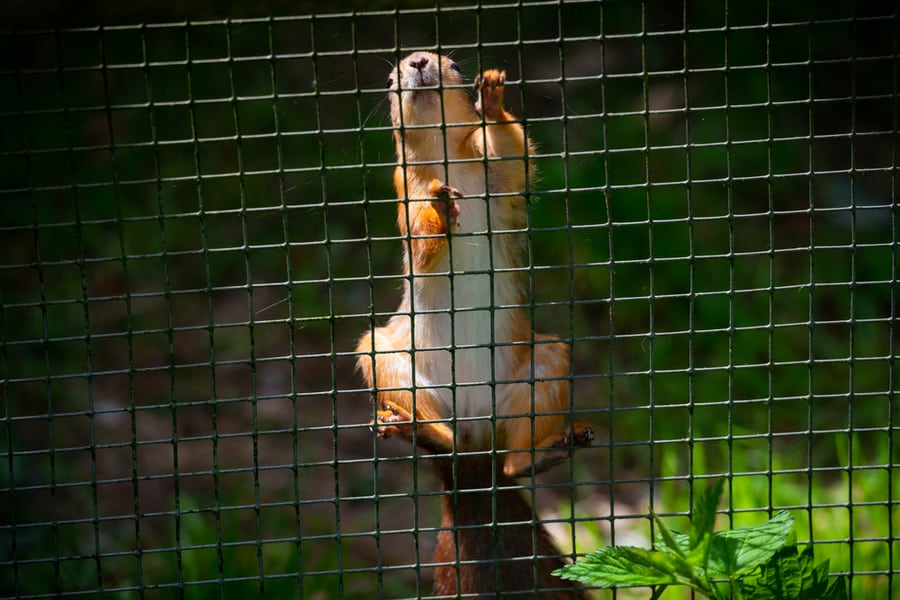
Around your solar panel system, fencing can be used to create a perimeter making it difficult for squirrels to get close enough to the panels to cause any damage.
There are several types of fencing that you can use, including chain-link, wood, or vinyl.
When choosing a fencing material, select a durable option that can withstand the elements and any potential impacts from squirrels.
Netting
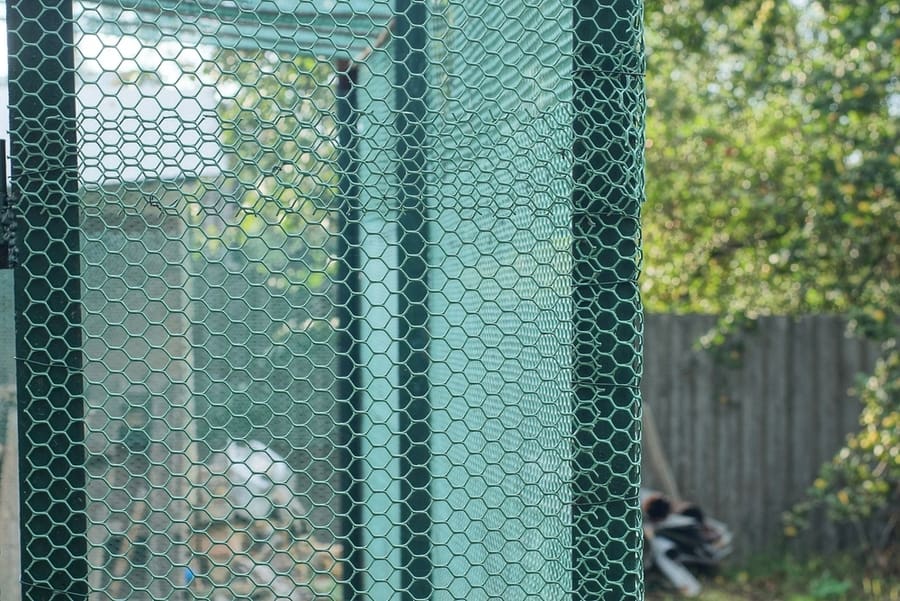
Also, netting can be used to cover solar panels themselves to prevent squirrels from climbing them.
There are several types of netting, including plastic and metal mesh.
When choosing a netting material, a durable option that can withstand any elements and potential impacts from squirrels should be picked.
Overall, physical barriers can be an effective way to prevent squirrels from accessing your solar panels.
Ensure to properly install and maintain the barriers; then, you can ensure their effectiveness against squirrels.
2. Electrical Barriers
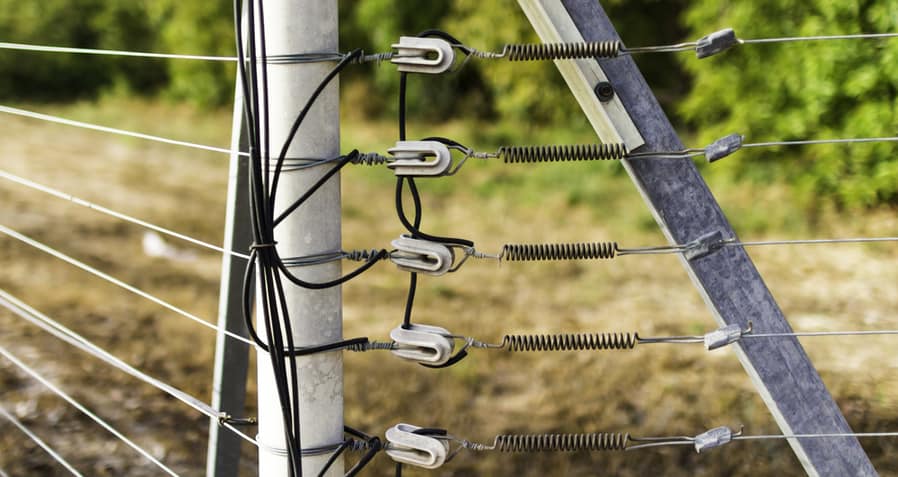
Electrical barriers are another squirrel preventative measure from accessing your solar panels.
Using electric charge, electrical barriers deter squirrels.
You can effectively prevent squirrels from causing damage to your solar panel system with electrical barriers, just that you must use them carefully and under local laws and regulations.
Below are a few options for electrical barriers to consider:
Electric Fences
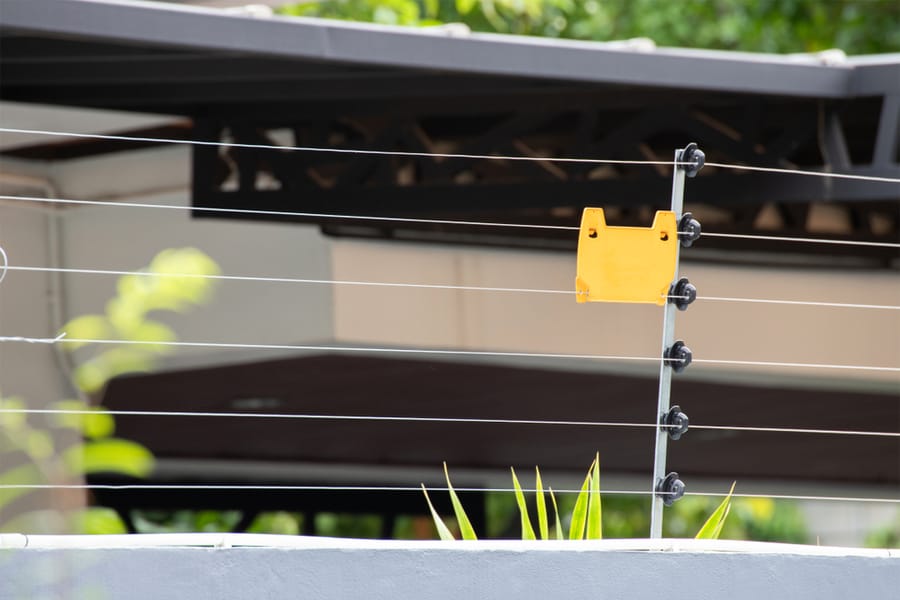
Electric fences emit a small, harmless electrical charge when an animal touches them.
These fences can create a perimeter around your solar panel system, deterring squirrels from approaching the panels.
Generally, electrical fences are easy to install and can be effective as a squirrel deterrent.
However, following the manufacturer’s instructions carefully is important to ensure the fence is properly installed and maintained.
Shock Strips
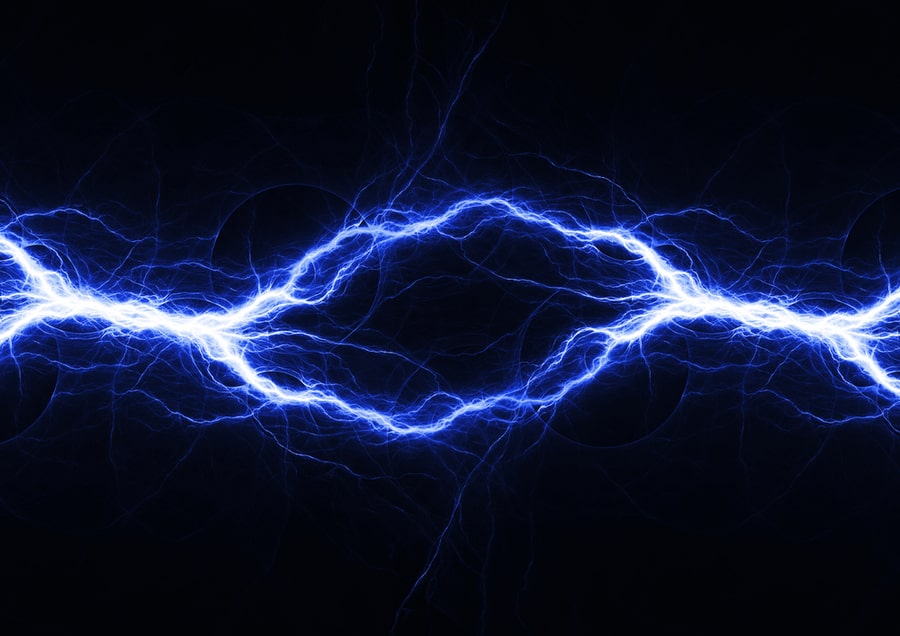
As the name suggests, Shock strips are small strips of material that can be placed along the edges of solar panels, which release an electrical charge when an animal(squirrel) touches them.
Shock strips are generally easy to install and can effectively deter squirrels. Still, it’s important to follow the manufacturer’s instructions carefully to ensure that the strips are properly installed and maintained.
Overall, electrical barriers are an effective way to prevent squirrels from accessing your solar panels.
It’s important to use the barriers carefully under local laws and regulations and the manufacturer’s instructions.
3. Chemical Repellents
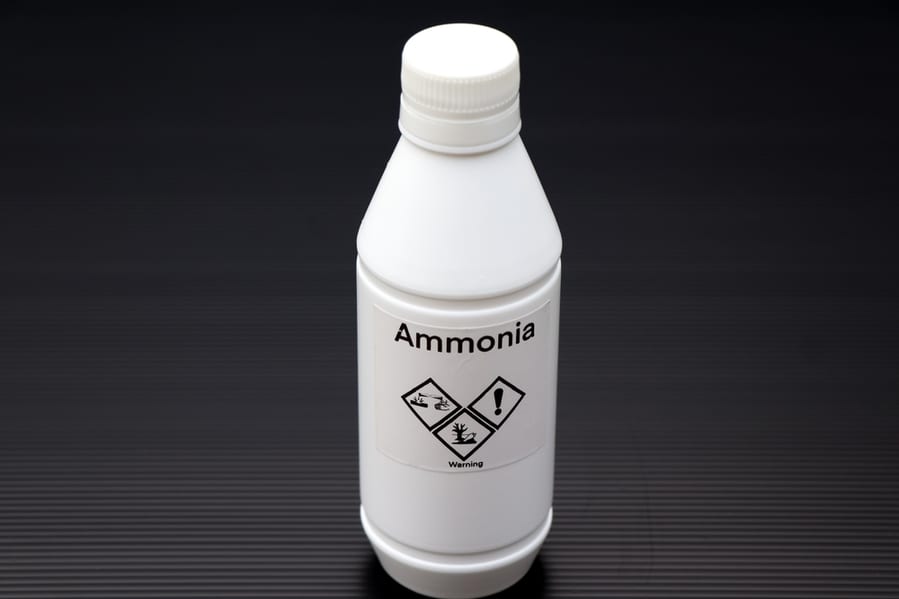
These products release unpleasant smells or taste that squirrels don’t like.
These repellents can be sprayed around the perimeter of your solar panel system or directly on the panels to deter squirrels.
Using chemical repellents carefully and under the manufacturer’s instructions can be a very effective way to prevent squirrels from accessing your solar panels.
Several chemical repellents are available, including strong smell-releasing products, such as peppermint or ammonia, and products that release a taste that squirrels hate, such as bittering agents.
When using chemical repellents, It’s important to choose a repellent that is safe and effective; also, be sure to follow manufacturer instructions carefully before using.
Overall, chemical repellents can be an effective way to prevent squirrels from accessing your solar panels.
However, carefully using these repellents under the manufacturer’s instructions and local laws and regulations is of utmost importance.
Professional Services
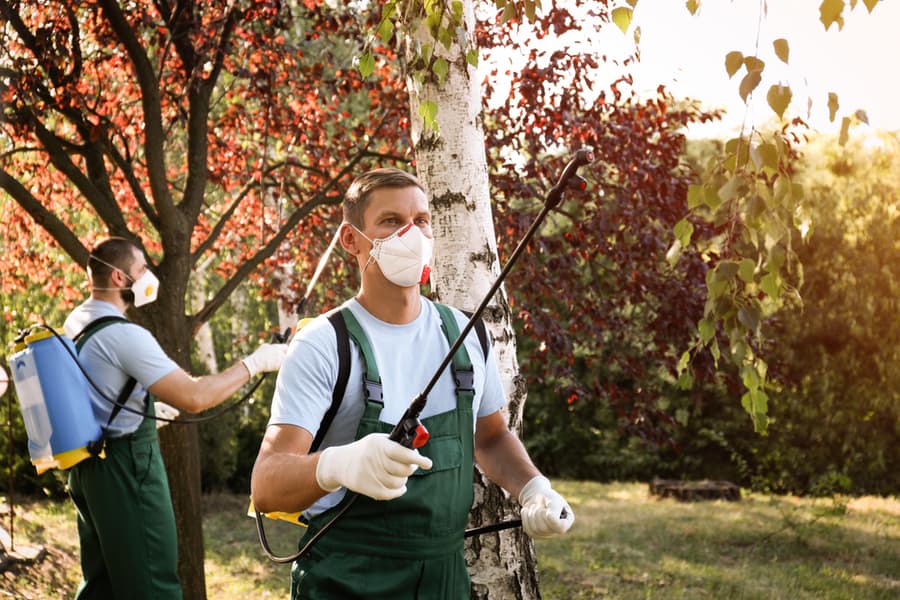
If you’re having trouble keeping squirrels away from your solar panel or are unsure where to start, you may consider hiring a professional to help.
Some companies specialize in squirrel control, which can help you protect your solar panel system from squirrels and other pests.
When hiring a professional service, search and choose a company with reputable experience in squirrels solar panel protection. Ask for references and check online reviews to understand the company’s track record.
Be sure to discuss your specific needs and concerns with the company, and get a written estimate of the cost of the services before proceeding.
Hiring a professional service can be a convenient and effective way to protect your solar panels from squirrels.
Doing your research and choosing a company with reputable experience in squirrel solar panel protection will go a long way in getting the desired outcome.
9 Tips on How To Keep Squirrels Away From Your Solar Panels

If you have ever had squirrels ln your solar panel area, then you know the struggle.
They love to chew on wires and cables, causing them to fail or break.
Here are some tips on how to keep squirrels away from your solar panels
1. Install a Squirrel-Proof Fence
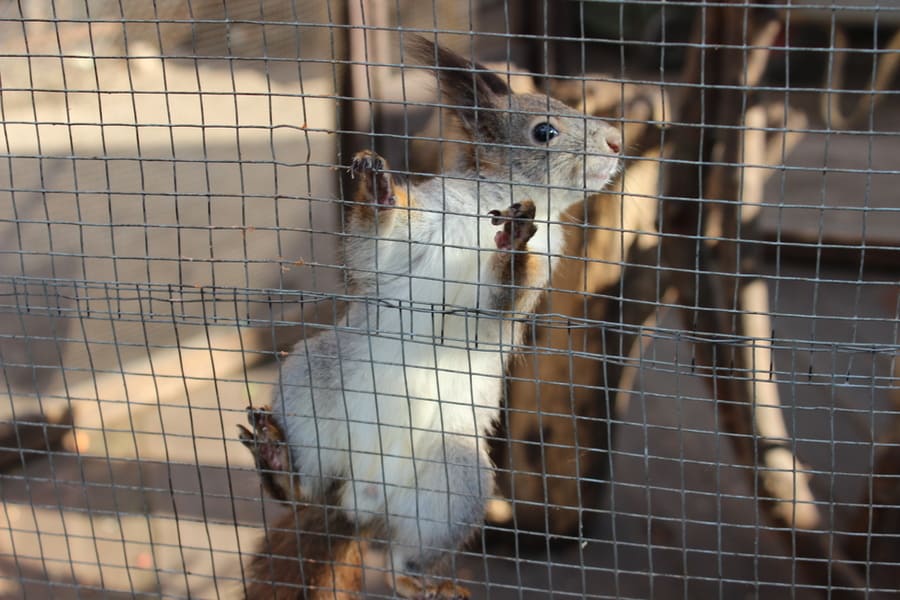
Installing a squirrel-proof fence around your solar panels effectively protects them from damage caused by curious critters.
Fences of various materials, such as wood, plastic, or metal, can create a barrier that squirrels cannot climb or jump over.
To further deter squirrels, install a motion-activated sprayer near the panels.
Regularly check and maintain the fence and sprayer to ensure they are working properly and effectively, keeping squirrels away from your solar panels.
2. Fill In the Holes in Your Panels
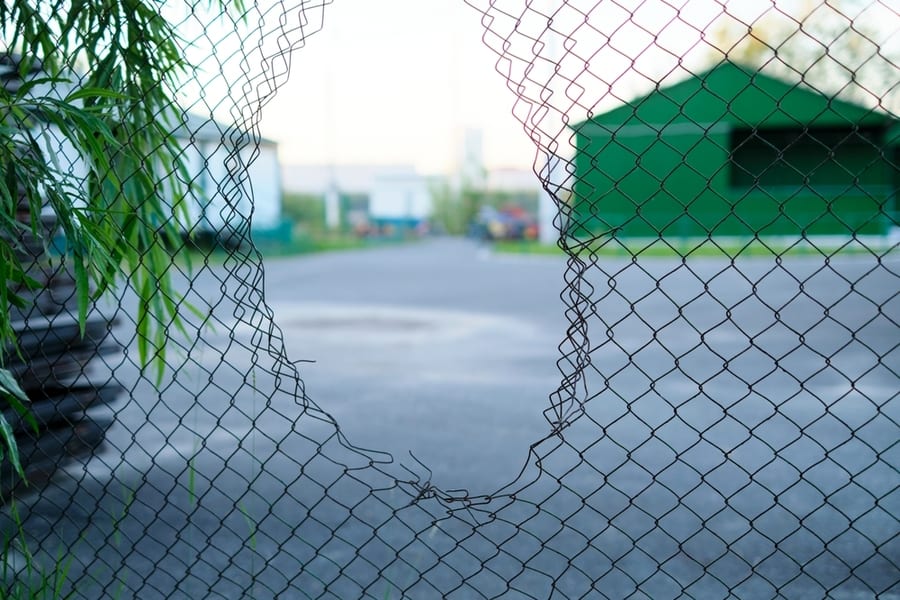
Installing solar panels is a great way to reduce energy costs and lower your carbon footprint, but pesky squirrels can be a major problem.
To avoid squirrels climbing up to your solar panels and causing damage, start by inspecting the area around your panels for any holes or gaps they can use as access points.
Fill in any holes or gaps with steel or hardware cloth, and make sure all the edges are securely sealed to provide a barrier that squirrels won’t be able to cross.
3. Use Motion-Activated Sprinklers

Motion-activated sprinklers are a great way to keep squirrels away from solar panels.
Once the squirrels enter an area where the motion-activated sprinklers are installed, they will detect their presence and spray them with water, prompting them to leave.
This is an effective method for keeping squirrels away from solar panels in your home or business, as it is non-lethal and provides a humane way of preventing damage to your property.
4. Apply Some Spray Foam
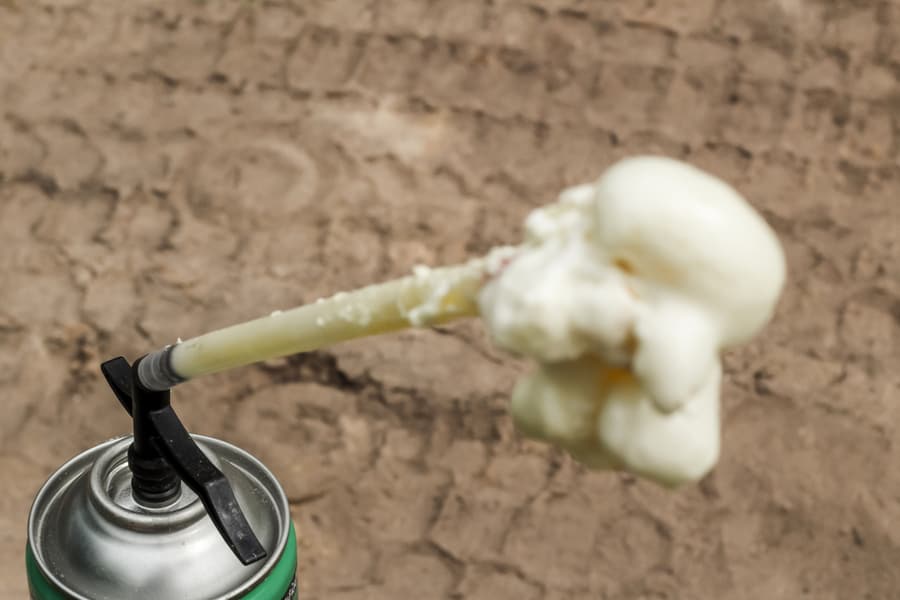
You can keep squirrels away from your solar panels by applying spray foam around the base of the solar array.
This creates a physical barrier that the squirrels won’t be able to cross.
Plus, it’s also a good idea to trim back any nearby trees or vines that could provide squirrels access to the panels.
Use a spray foam product safe for your solar array, and always follow the manufacturer’s instructions.
5. Put Up a Scarecrow

Putting up a scarecrow is one of the most effective ways to keep squirrels away from solar panels.
Scarecrows can be made from various materials, from wood and straw to old clothes and even leftover Halloween costumes.
Not only are they inexpensive and relatively easy to make, but they also deter curious squirrels.
You can ensure that your solar panels stay safe and squirrel-free by using a combination of other deterrents alongside the scarecrow, such as motion-activated sprinklers or ultrasonic sound devices.
6. Use Fine Mesh Wire Netting
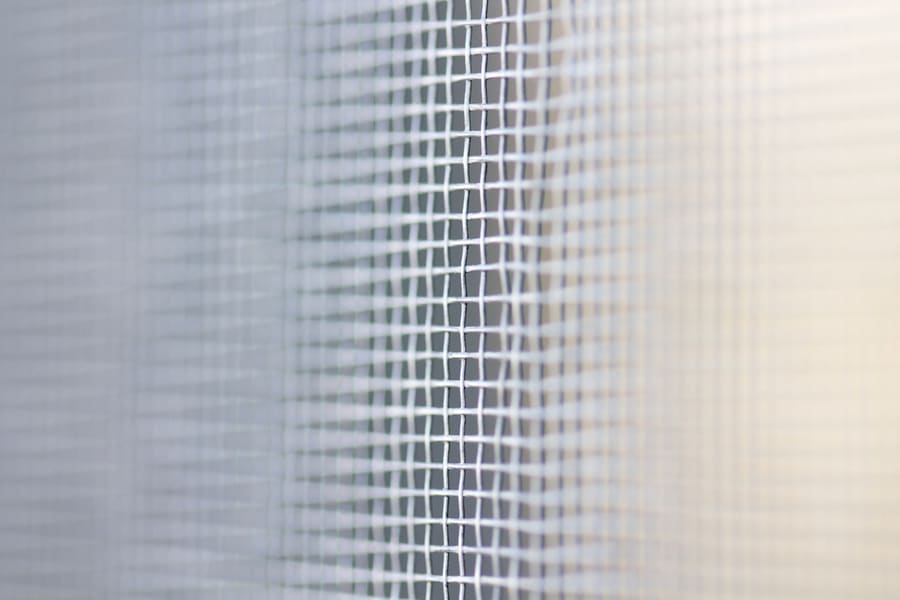
Fine mesh wire netting is an effective method for keeping squirrels away from your solar panels.
This netting easily attaches to the solar panel frame and prevents animals from getting close to the panels.
Additionally, it is a cost-effective solution that will not cause any harm to the animals or the solar panel system.
7. Put Up Plastic Wrap Around Your Solar Panels
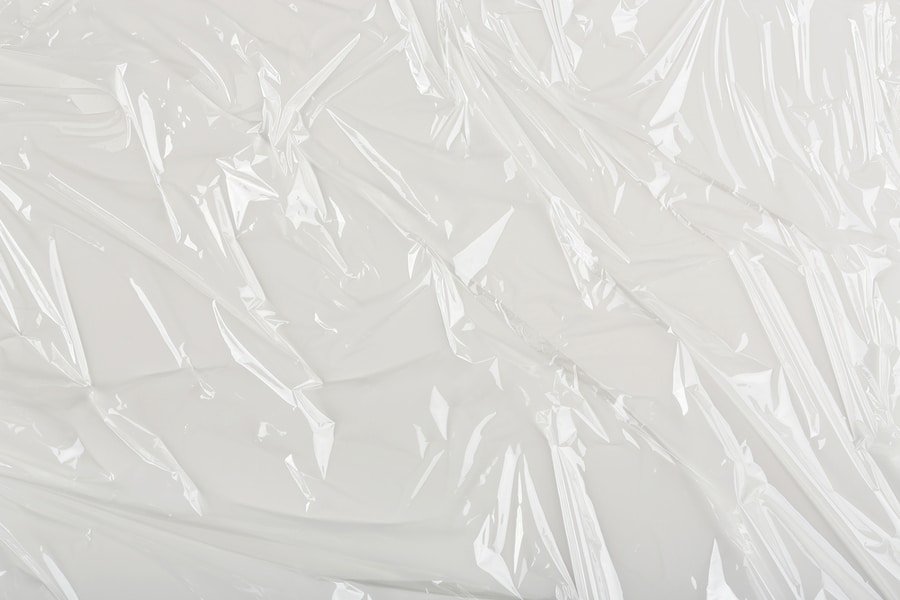
One way to keep squirrels away from your solar panels is to put a plastic wrap barrier between the panels and the roof.
This will prevent the squirrels from accessing and causing the panels any damage.
To do this effectively, securely attach the wrap to the roof and the panels and regularly check for any signs of wear or damage.
Additionally, ensure the wrap is thick enough to prevent the squirrels from chewing it through.
By taking these preventive measures, you can help ensure your solar panels remain safe and functional.
8. Hang Insect Repellent Plants Near Your Panel Area

One effective way to keep pesky squirrels away from your solar panels is to hang insect-repellent plants near the panel area.
These plants give off a strong scent that squirrels find unbearable, driving them away from the area.
Some great insect-repellent plants include marigolds, eucalyptus, lavender, and garlic.
Not only are these plants effective in keeping squirrels away, but they can also be a colorful and fragrant addition to your garden.
9. Get Rid of Leaves and Decaying Vegetation From Around Your Solar Panels
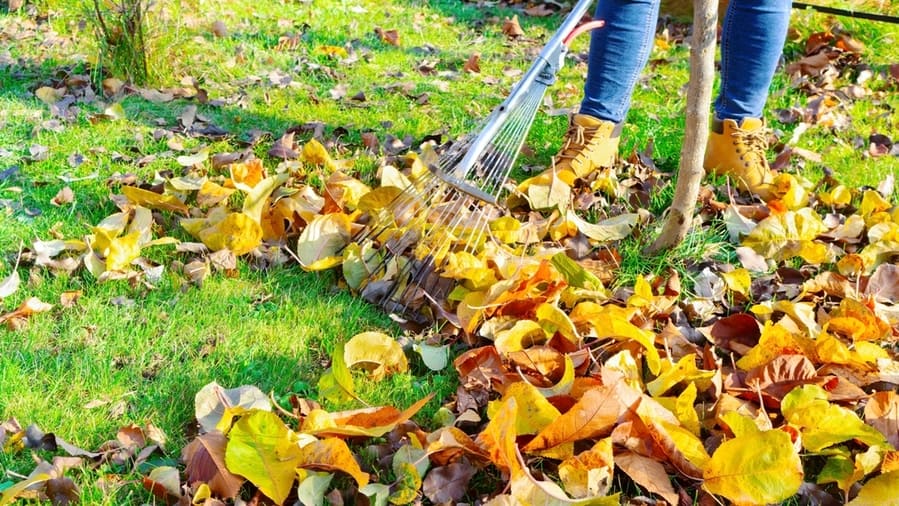
Leaves and decaying vegetation can attract squirrels and other pests to your solar panels, so keeping these areas clean is important.
Raking up leaves and debris can help keep your solar panels safe and free from damage.
Additionally, it would be best if you trim the nearby trees or shrubs to prevent squirrels from being able to climb onto the panels.
Finally, consider using a mulching mower to help maintain a clear path around the solar array.
These are just a few tips to keep squirrels away from your solar panels.
Although they are not guaranteed for everyone, they should be able to help you keep your panels safe and squirrel-free.
Conclusion
This post discusses the dangers of squirrels on solar panels and various methods for preventing them from accessing and damaging your solar panels.
We’ve also discussed hiring a professional service to deter squirrels from your solar panels.
Overall, taking action to protect your solar panels from squirrels is important, as the damage they cause can be costly to repair and can disrupt the operation of your solar energy system.
By implementing one or more of the prevention methods discussed in the post, you will be sure to keep squirrels away from your solar panels and protect the integrity and efficiency of your solar energy system.
If you’re concerned about squirrels and your solar panels, we encourage you to take action and implement one or more of the prevention methods discussed in the post.
Doing so can help protect your solar panels and ensure they generate clean, renewable energy for you and your home.
Frequently Asked Questions
Do Squirrels Damage Solar Panels?
Yes, squirrels can cause damage to solar panels by chewing on wires and other components.
Therefore, it’s important to take preventative measures to keep squirrels away from your solar panels.
These measures include but are not limited to installing physical barriers, hanging insect-repellent plants, and keeping the area around the panel clean.
What Type of Damage Can Squirrels Cause to Solar Panels?
Squirrels can cause a range of damage to solar panels, including gnawing on cables, scratching panels, and even blocking ventilation systems.
This can lead to decreased efficiency in the solar panel system and, in some cases, costly repairs.
How Can I Prevent Squirrels From Accessing My Solar Panels?
One of the best ways to prevent squirrels from accessing your solar panels is to install a physical barrier around the panels, such as plastic wrap or mesh wires.
You can also hang insect-repellent plants near the panel area, as this will give off a strong scent that squirrels find unbearable, driving them away from the area.
Other methods you can use include removing leaves and decaying vegetation around the panels, trimming trees to prevent the squirrels from climbing onto the panels, and using motion-activated lights to scare them off.
What Is the Best Way To Keep Squirrels Away From Solar Panels?
There are several ways to keep squirrels away from solar panels, such as installing motion-activated lights, using plastic wrap barriers, and hanging insect-repellent plants near the panel area.
Additionally, keeping the area around the panels clean and clear of leaves and other debris can help deter squirrels.
Is It Worth Hiring a Professional Service To Keep Squirrels Away From Solar Panels?
Hiring a professional service to keep squirrels away from solar panels can be a cost-effective solution as it can prevent costly damage and disruption to your solar panel system. Additionally, professional services can provide long-term protection from squirrels, making it a worthwhile investment.



